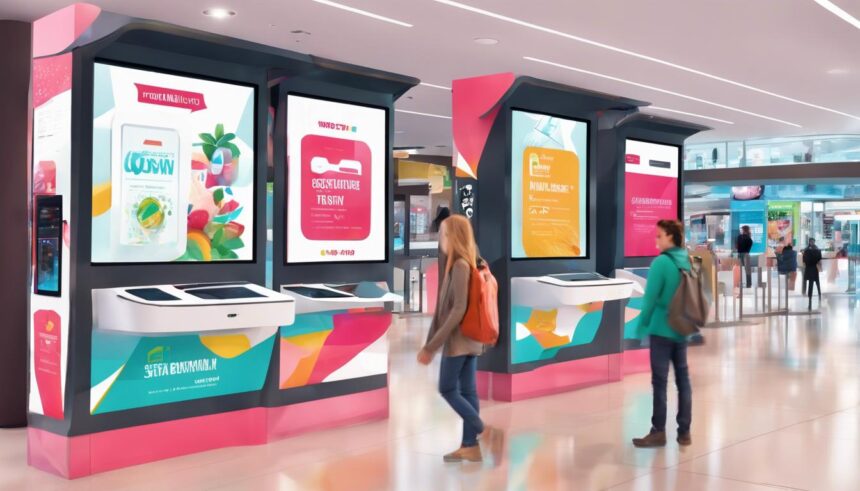The kiosk industry is set for significant changes in 2024, with technology-driven innovations enhancing services across multiple sectors, improving convenience and operational efficiency.
Kiosk Industry Poised for Innovation and Growth in 2024
April 15, 2024 – The landscape of the kiosk industry is changing, as technological advancements and evolving consumer needs drive innovation and expand the functionalities of these standalone terminals. Across the UK, from shopping centres to train stations, digital kiosks are becoming an increasingly common sight, facilitating a wide array of services and transactions with greater efficiency and decreased human contact.
Digital kiosks, which have been part of public and retail environments for decades, are now increasingly sophisticated. Modern kiosks are not only payment and ticketing stations but are evolving into comprehensive service points offering everything from digital advertising to detailed information and customer services. This expansion of capabilities is made possible by the enhancement of technologies such as touchscreens, connectivity solutions, artificial intelligence, and machine learning.
By enhancing user interfaces and integrating advanced software that can analyse user data and adapt interactions accordingly, kiosks are becoming more intuitive and helpful. The accessibility of these systems is also a focus, with designs incorporating features for all users, including those with disabilities, to navigate services without needing staff assistance.
In addition to enhancements in technology, environmental considerations are also becoming a priority. More companies are now seeking to reduce their carbon footprints, pushing the kiosk industry towards using sustainable materials and energy-efficient designs. This includes features like solar panels to power units independently, and the use of recycled materials for the kiosk enclosures.
Financially, the kiosk market is experiencing robust growth. This surge is fuelled by both the private and public sectors’ increasing reliance on self-service solutions to improve customer service efficiency and reduce operational costs. The healthcare, retail, and transportation sectors are particularly enthusiastic adopters, utilising these innovative solutions to streamline processes and enhance user experiences.
For instance, in the healthcare sector, self-service kiosks are being employed not just for check-in purposes but also for patient education, wayfinding within large hospital complexes, and handling prescription arrangements. Meanwhile, in retail, beyond the basic functionalities of checkout and returns, kiosks are being used for product recommendations, virtual try-ons, and managing loyalty programmes, transforming the shopping experience into something more personalised and engaging.
Looking ahead, the integration of kiosk technologies is likely to increase further as businesses and public services strive to meet the rising expectations for speed, convenience, and safety. As these terminals become more embedded in daily activities, they are set to fundamentally reshape interactions within public and commercial spaces.
The evolution of kiosks represents a significant shift in how services are delivered across multiple sectors. It underscores an era where technology meets practicality, leading to not only operational efficiencies but also enhanced user experiences. As 2024 progresses, expect to see more innovative applications and an increase in the ubiquity of digital kiosks, making everyday transactions smoother and faster for everyone.





